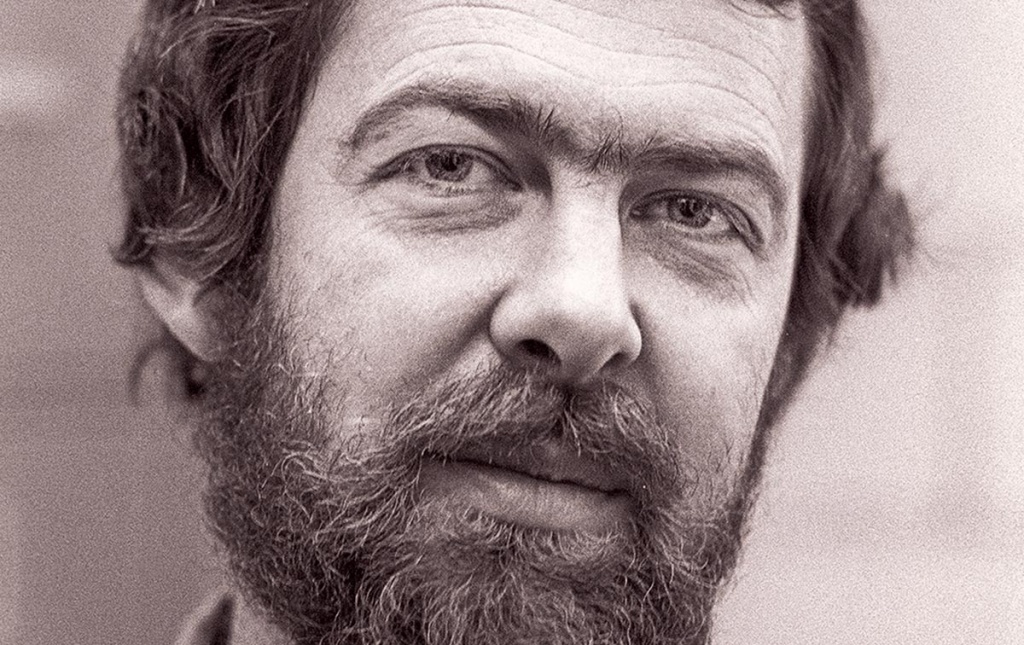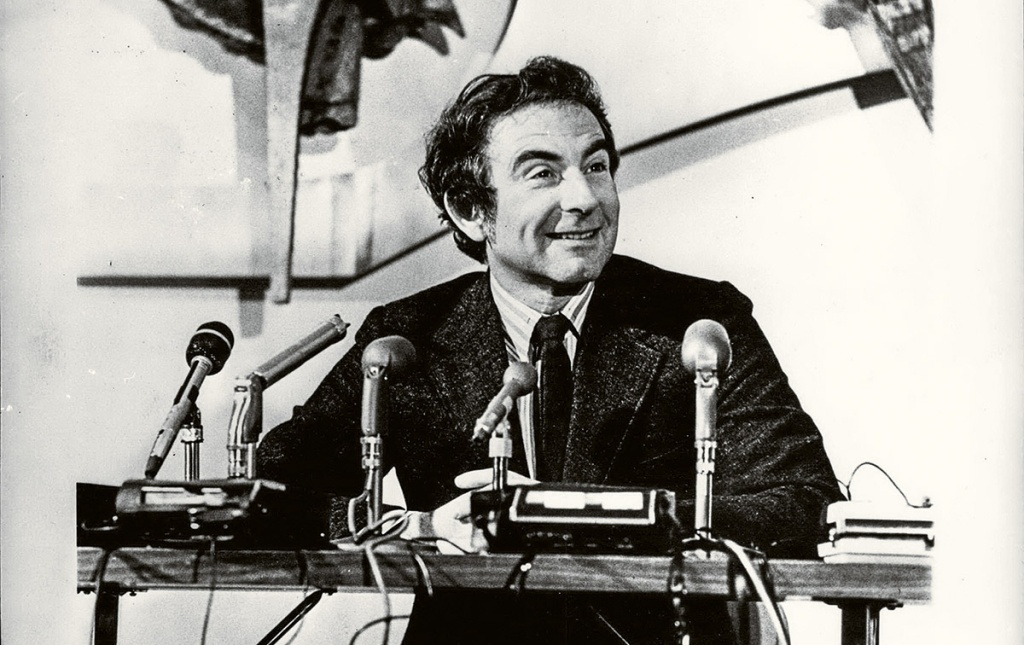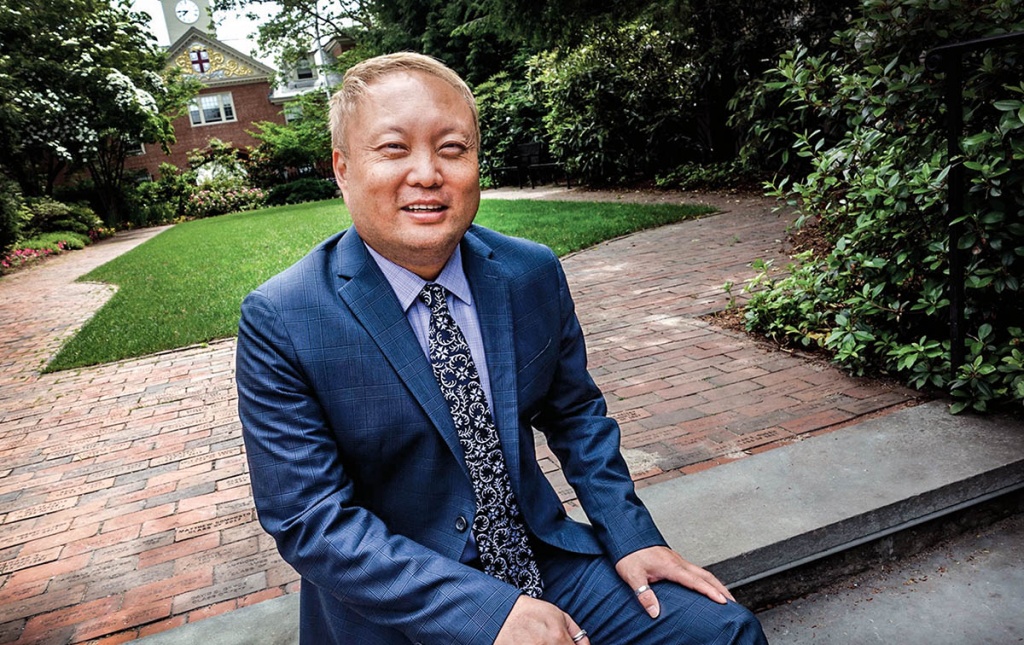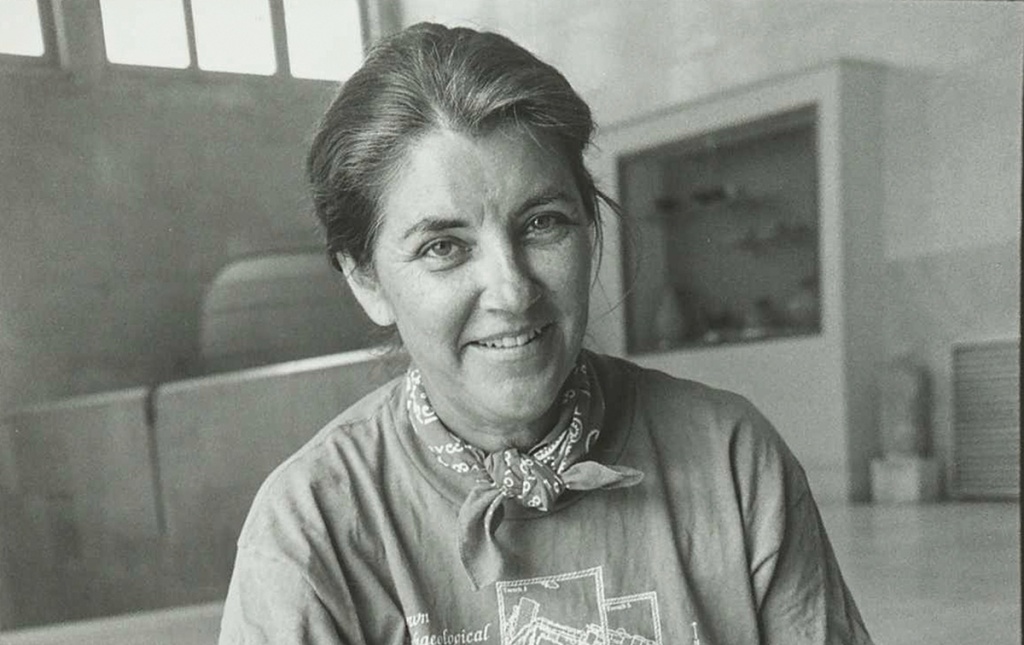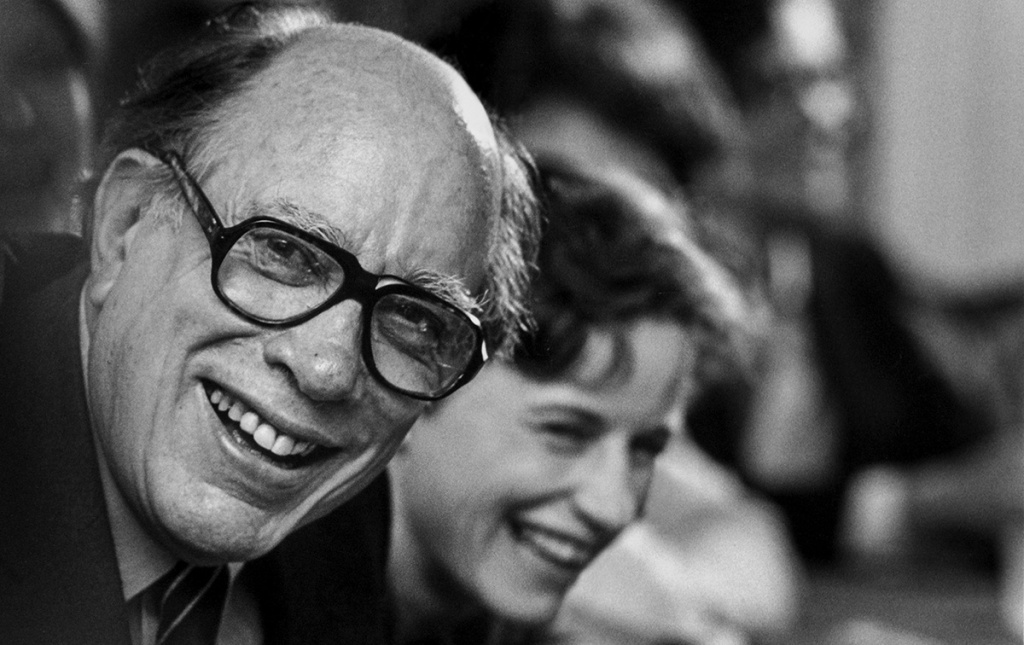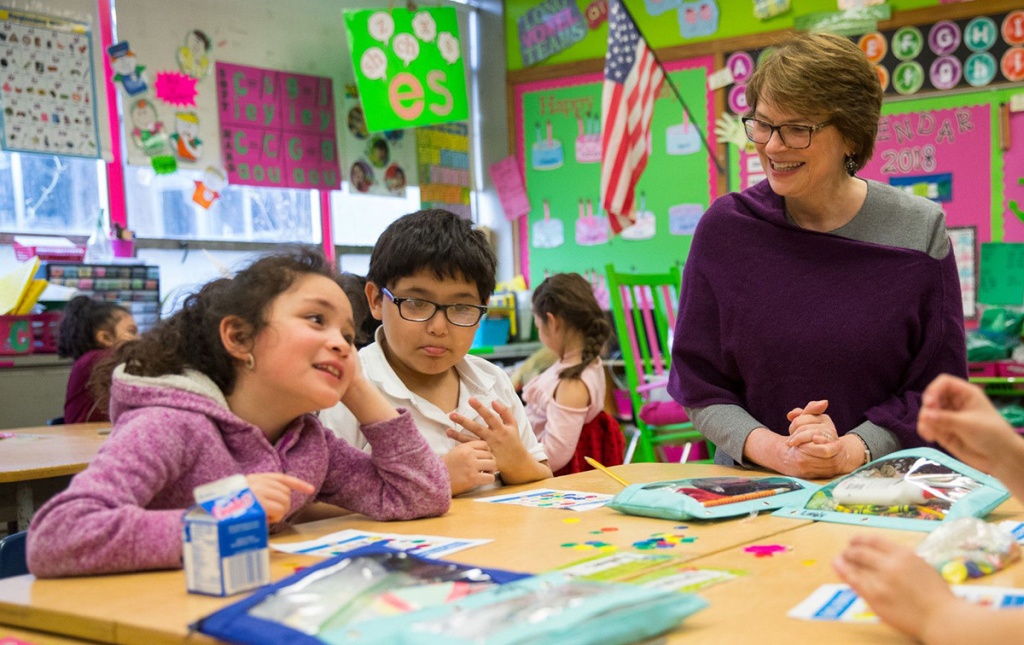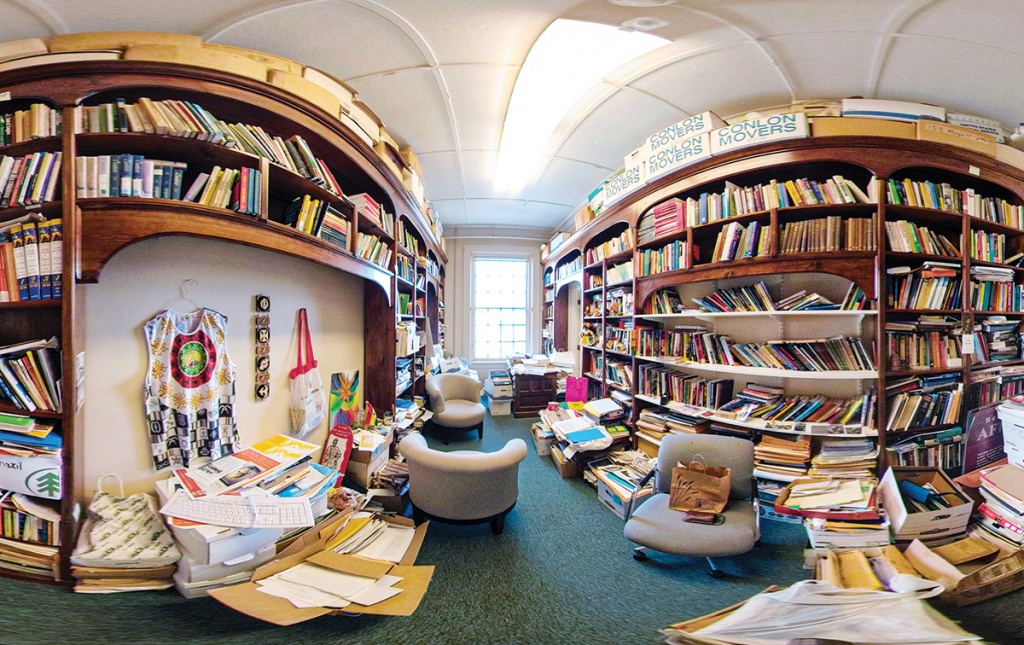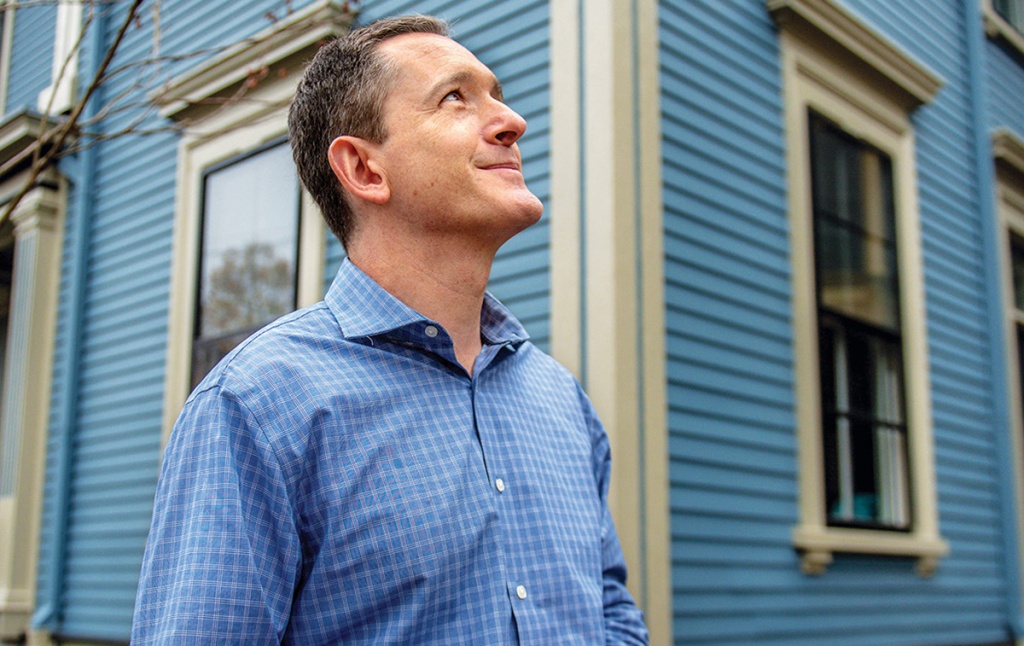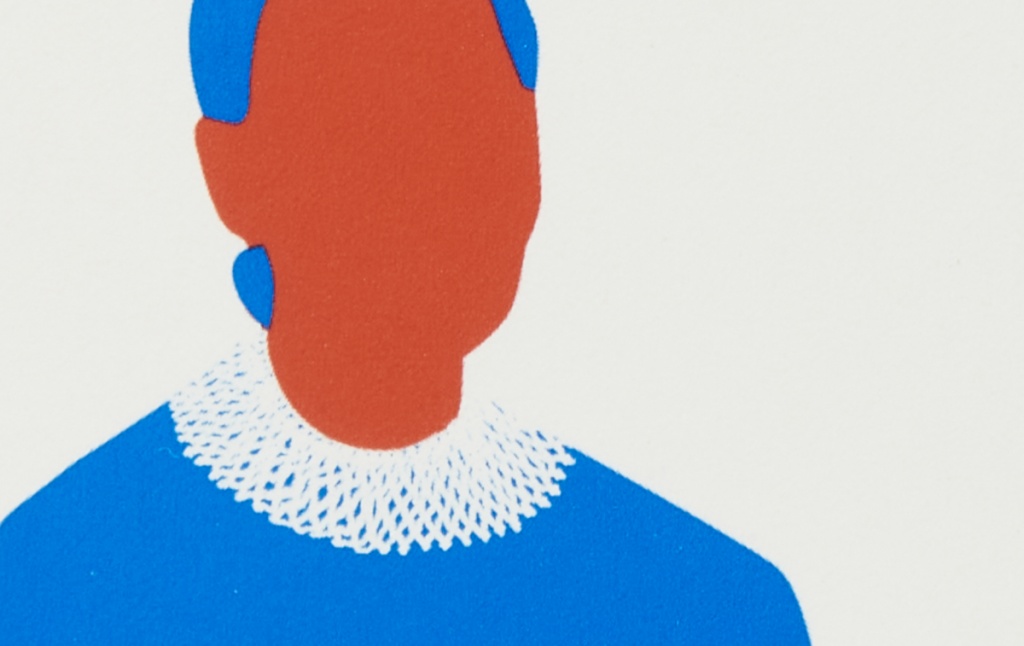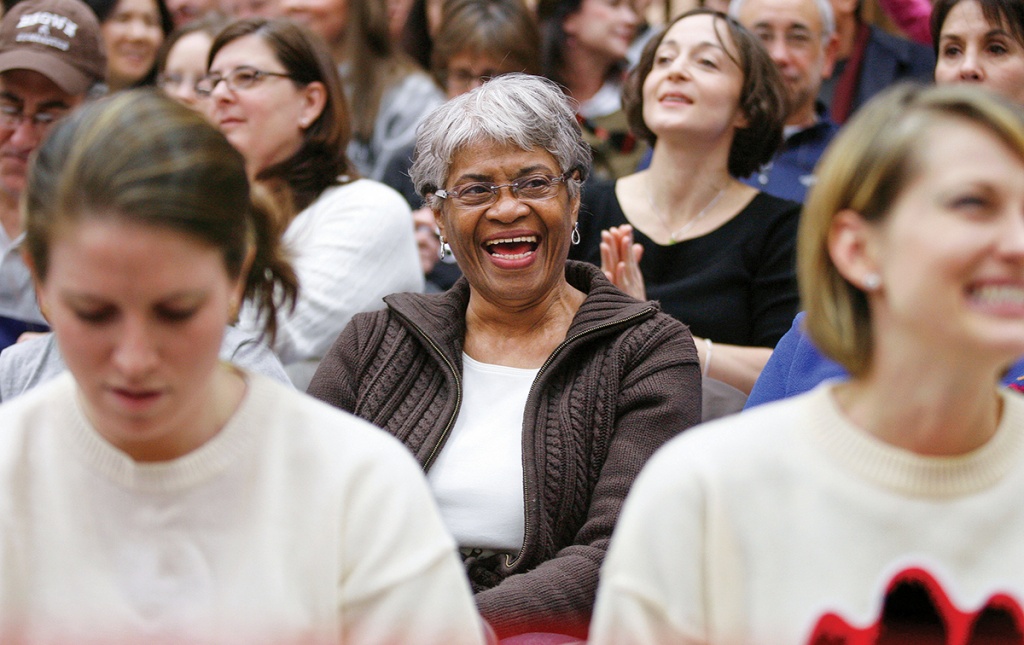FAC
Brown physics professor and codirector of Brown’s Presidential Scholars Program, Stephon Alexander ’95 ScM, ’97 ScM, ’00 PhD, has been elected president of the National Society of Black Physicists. His research work focuses on the interface between cosmology and particle physics.
Obituaries
Arthur Frazzano, of Providence, R.I.; Jun. 2. After two decades practicing family medicine in Portsmouth, R.I., he taught at Brown’s Warren Alpert Medical School and served as associate dean of the clinical faculty. He also served as president of both the Rhode Island Academy of Family Physicians and the Rhode Island Medical Society. He earned numerous accolades and was the recipient of the Charles Hill Award.
Alison Field, of Newton Center, Mass.; Oct. 10, 2024, from brain cancer. She was an internationally recognized epidemiologist specializing in childhood eating disorders. In 1996, while completing her post-doctoral fellowship at the Channing Laboratory at Brigham and Women’s Hospital, she launched the Growing Up Today Study (GUTS), a long-term study of eating disorders and obesity prevention and treatment. She joined Harvard Medical School’s faculty in 1997 as a professor of epidemiology and pediatrics and had appointments at the Brigham and Women’s Hospital and Boston Children’s Hospital. In 2015, she joined the Brown faculty, where she served as chair of the epidemiology department, director of the Center for Epidemiology and Environmental Health, and associate dean for faculty affairs at the Brown University School of Public Health. In 2024, the Obesity Society honored her many professional accomplishments by naming an award in her name: the Alison Field Early-Career Award for Excellence in Research in Pediatric Obesity and she was recognized with a Lifetime Achievement Award from the Academy for Eating Disorders. Her initial cancer diagnosis in her early 30s propelled her into marathon training and she ultimately completed 10 races in five states over 15 years, including five Boston marathons, raising funds for the Dana Farber Cancer Institute.
Robert P. Davis, of Providence, R.I.; Feb. 14, 2024, of renal failure brought on by pneumonia. In 1952, while chief resident in internal medicine at Brigham Hospital, he was elected to the Society of Fellows at Harvard and conducted pioneering research. He later taught medicine at the University of North Carolina and at Albert Einstein College of Medicine (N.Y.). He took a sabbatical from 1965 to 1966 to be a visiting scientist at the Institute for Biological Chemistry at the University of Copenhagen in Denmark and in 1967, he joined the faculty at Brown as both professor and physician-in-chief of the Miriam Hospital in Providence, a post he held until 1974. During his tenure, he was instrumental in building the Miriam’s profile as a research institution and its connection to the Warren Alpert Medical School at Brown. He was a driving force behind the construction of a building dedicated entirely to laboratory research and led the team that performed the first kidney transplant conducted in the state of Rhode Island. He continued to teach at Brown and helped establish a program in biomedical ethics. From 1974 to 1979, he served as director of renal and metabolic diseases at Miriam, during which time he worked to integrate regional and state organ banks and further promote organ transplantation in Rhode Island. He spent the last three decades of his life pursuing interests he had maintained since childhood, which included founding a rare bookstore, Gadshill, devoted to 19th- and 20th-century British and American literature, culture, and science. He later exhibited his collection and lectured on Dickens at the Grolier Club in New York and the Club of Odd Volumes in Boston. For more than 20 years he attended the annual Dickens conference at UC Santa Cruz. He was a World War II U.S. Navy veteran. Survivors include his daughter Elizabeth A. Davis ’90 and son John R. Davis ’79.
Dan E. Caldwell, FAC, of Pacific Palisades, Calif.; Jan. 8, after a four-year battle with cancer.He earned his bachelor’s degree at Stanford University and upon graduation, he entered active duty in the U.S. Navy, where he was a staff assistant in the Office of Emergency Preparedness, Executive Office of the President, in Washington, D.C. He was later assigned to teach national security affairs at the Naval Postgraduate School in Monterey, California. He received a master’s in international relations from the Fletcher School of Law and Diplomacy at Tufts University and returned to Stanford, where he earned a master’s and PhD in political science before beginning his career at Pepperdine in 1978. While at Pepperdine, he twice served as president of the Seaver College faculty and played significant roles in growing the political science program and launching the international studies program. He was integral in establishing the Scholarship Initiatives Office on campus, and was an advocate for Pepperdine’s student-veterans. He founded the Pepperdine Committee on Student-Veterans, which led to the creation of the Office of Student-Veteran Affairs in 2020. He had visiting appointments at UCLA, the University of Southern California, and Brown, where he helped to establish the Center for Foreign Policy Development (now the Watson Institute for International and Public Affairs). He was also a lifetime member of the Council on Foreign Relations and, for many years, the chair of its academic outreach initiative. He received many teaching awards. He was active in Pacific Palisades Presbyterian Church and enjoyed hiking, skiing, boating, and playing tennis. He is survived by his wife, Lora; two daughters; a son and daughter-in-law; a son-in-law; and two grandchildren.
Alfred Toselli, of Providence, formerly of Jamestown, R.I.; Sept. 18. He completed medical school at the University of Bologna and subsequent residencies at St. Joseph Hospital and Rhode Island Hospital before founding Pediatric Associates, Inc. in Rhode Island. He served as chief of pediatrics at St. Joseph Hospital for 10 years and was on staff at Rhode Island Hospital, Women & Infants Hospital, Our Lady of Fatima Hospital, and Pawtucket Memorial Hospital. He received numerous awards during his 45-year career that included being appointed clinical assistant professor of pediatrics at Warren Alpert Medical School and president of the Rhode Island Chapter of the American Academy of Pediatrics from 1986 to 1988. He was active in Italian-American medical affairs and was awarded the Order of the Star of Italy with the rank of cavaliere by the president of Italy in 1974. He is survived by a son and daughter-in-law, three grandchildren, and two great-grandchildren.
Linda B. Miller, of South Wellfleet, Mass.; Jan. 19. After graduating from Radcliffe College and Columbia University, she taught political science at Wellesley College for more than 30 years. She later joined the faculty of Brown and taught at the Watson Institute for International and Public Affairs for more than 15 years. More recently, she taught an adult class at the Wellfleet Public Library. She is survived by her sister Devra M. Breslow ’54 and several cousins and friends.
Joseph A. Chazan FAC, of Providence, a leading doctor, professor, businessman, and supporter of local arts, died Jul. 26. After completing his training at the former Boston City Hospital, he was a renal fellow at New England Medical Center and Beth Israel Hospital and served as a doctor in the public health service in Birmingham, Ala., before joining the Brown faculty. He developed and initiated the kidney dialysis program at Rhode Island Hospital. For many years he was clinical professor of medicine at Brown and director of renal diseases at Miriam Hospital, Memorial Hospital, and Rhode Island Hospital. In 1973, he established the Artificial Kidney Center of Rhode Island, the state’s first free-standing dialysis clinic. He went on to open eight more R.I. clinics and two in Massachusetts and was the founder of Nephrology Associates Inc. A great supporter of the arts, through the years he donated much of his collection to more than 40 museums. All the dialysis clinics he was associated with were furnished with art by local artists. “I think it would be nice if there were many more professionals who adorn their offices with local art instead of posters and prints,” he would say. In 2008 he launched NetWorks Rhode Island, a visual arts project. His wealth of knowledge and experience were instrumental in shaping the WaterFire Arts Center and its programs. He was involved with the Steel Yard, the Rhode Island Philharmonic, AS220, Farm Fresh, and the Providence Public Library. In 1978, he and his wife Helene, who predeceased him, established a scholarship in their names at the Rhode Island Foundation for the benefit of the Wheeler School. In 1984, they endowed the Friends of Glass scholarship at RISD, and in 1985, they established a scholarship fund for University at Buffalo medical students. He was honored with the 2013 Pell Award for outstanding leadership in the arts, while the American Kidney Fund named him its national caregiver of the year. The RISD Museum presented a selection of objects donated by the Chazans in its 2005 exhibition “Chazans’ Choice,” and in 2019 presented him with the RISD president’s medal of honor. He was proud of his Jewish heritage and served as a member and supporter of Temple Beth-El for more than 60 years. He is survived by his partner Vicki Veh; two daughters and sons-in-law; a son and daughter-in-law; nine grandchildren; and three great-grandchildren.
James H. Wyche, of Oklahoma City, Okla.; Jul. 1, following an illness and after dealing with years of glioblastoma and kidney cancer. His career as a cell and molecular biologist and cancer researcher spanned five decades. At the time of his death he was emeritus professor in the department of chemistry at Howard University. He began his career as an assistant professor of biology at the University of Missouri–Columbia, then became associate professor of biology at Hunter College (CUNY), where he also was chair of the minority biomedical research program. This provided him opportunities to develop programming aimed at increasing the representation of underrepresented minority students in science. He held appointments as associate provost and professor of medical science at Brown from 1987 to 2001. In 1988, he was appointed associate dean for minority affairs with the charge of overseeing minority faculty hiring and graduate program development as well as overseeing minority affairs. Under his direction the Summer Research Early-Identification Program (SRE-IP) was established along with the Minority Faculty Fellowship Program in 1989. He was instrumental in the creation of the Leadership Alliance and served as its executive director. From 2001 to 2002 he served as interim president of Tougaloo College. After that, he became vice provost, dean of the College of Arts and Sciences and professor of biology and molecular pharmacology at the University of Miami (2002-2005); vice provost for academic affairs and the Edith Kimmey Gaylord Presidential Professor of biochemistry and molecular biology at the University of Oklahoma Health Sciences Center (2005-2007); and division director of human resource development in the education and human resources directorate at the National Science Foundation (2008-2010). He then returned to Howard as provost and chief academic officer (2010-2012) and professor of chemistry. Dealing with his illness, he left administration and taught in undergraduate chemistry laboratories from his wheelchair before retiring in 2019. He held two U.S. patents and was an investigator on many grants and projects. He is survived by his wife, Dr. Karen Fraser Wyche; two sons; a daughter-in-law; a grandson; a sister; and nieces and nephews.
Newell M. Stultz, of Newport, formerly of Barrington, R.I.; Jan. 12, 2024. Professor emeritus of political science. After graduating from Dartmouth, he spent a year as a Fulbright Scholar at the University of Pretoria in South Africa, where he met his future wife, Elizabeth Olckers Stultz, who predeceased him. After three years serving in the U.S. Navy, he earned a doctorate in political science and African studies at Boston University. A year on the faculty of Northwestern University followed before he joined the Brown faculty in 1965. He retired from Brown after 38 years, having chaired the political science department from 1973 to 1977 and subsequently having served twice as its acting or interim chair. He was a member of the committee that produced the Maeder Report, which gave birth to the Open Curriculum. He was the author or coauthor of four books and numerous articles. Most of his research focused on Africa, specifically South Africa, and was supported by the Ford and Rockefeller Foundations and the Heinz Endowments. He held visiting appointments at Yale and the University of South Africa. He served as president of the New England Political Science Association. He is survived by a daughter, a son, three grandchildren, and a brother.
Herbert M. Fried, of Cranston, R.I.; Nov. 18, 2023. He was professor emeritus of physics. He graduated from Brooklyn College and was attending UConn when his studies were interrupted by the Korean War. Following two years in the U.S. Army, he completed his physics studies at Stanford University. He spent a postdoctoral year at the École Normale Supérieure in Paris, three years teaching physics at UCLA, a year as a visiting member of the Institute for Advanced Study at Princeton, and two years as visiting physicist at the Courant Institute at NYU. In 1964 he joined the physics faculty at Brown. Despite retiring in 1997, he continued to teach, advise graduate students, and perform research for years afterwards. A specialist in functional methods developed by Julian Schwinger and others, he authored four books and more than 140 scientific papers. He personally knew many physics luminaries, including Robert Oppenheimer and Freeman Dyson. He lectured and performed research in university departments and institutes throughout the world and for many years was director of the workshops on non-perturbative quantum chromodynamics at the American University of Paris and La Citadelle of Villefranche-sur-Mer. He continued active research throughout his life, completing his fourth book in 2014 at age 84, and publishing scientific papers well into his 90s. He spent sabbatical years living in Paris, Nice, and Villefranche-sur-Mer with his family. He was active in Brown’s study abroad program at the American University of Paris and was a tireless advocate of foreign language study as a means of expanding horizons. Among his closest collaborators were French physicists Yves Gabellini and Thierry Grandou. He was a self-taught painter of numerous portraits and landscapes. A sunrise he painted in Kyoto was displayed at the Kyoto Institute of Theoretical Physics. He was also an avid reader of mysteries and spy novels. He could recite from memory poems by Robert Service and Lewis Carroll, and was always more than willing to give an audience an entertaining performance, especially his comedy routine impersonating the fictional Josiah S. Carberry. For more than 30 years, he and his wife Nancy, who survives him, were active members of the First Unitarian Church in Providence and regular attendees of the Institute for Religion in an Age of Science (IRAS) on Star Island. In addition to his wife, he is survived by a daughter; sons Jonathan ’81 and William ’01; a daughter-in-law; two granddaughters; and a sister.
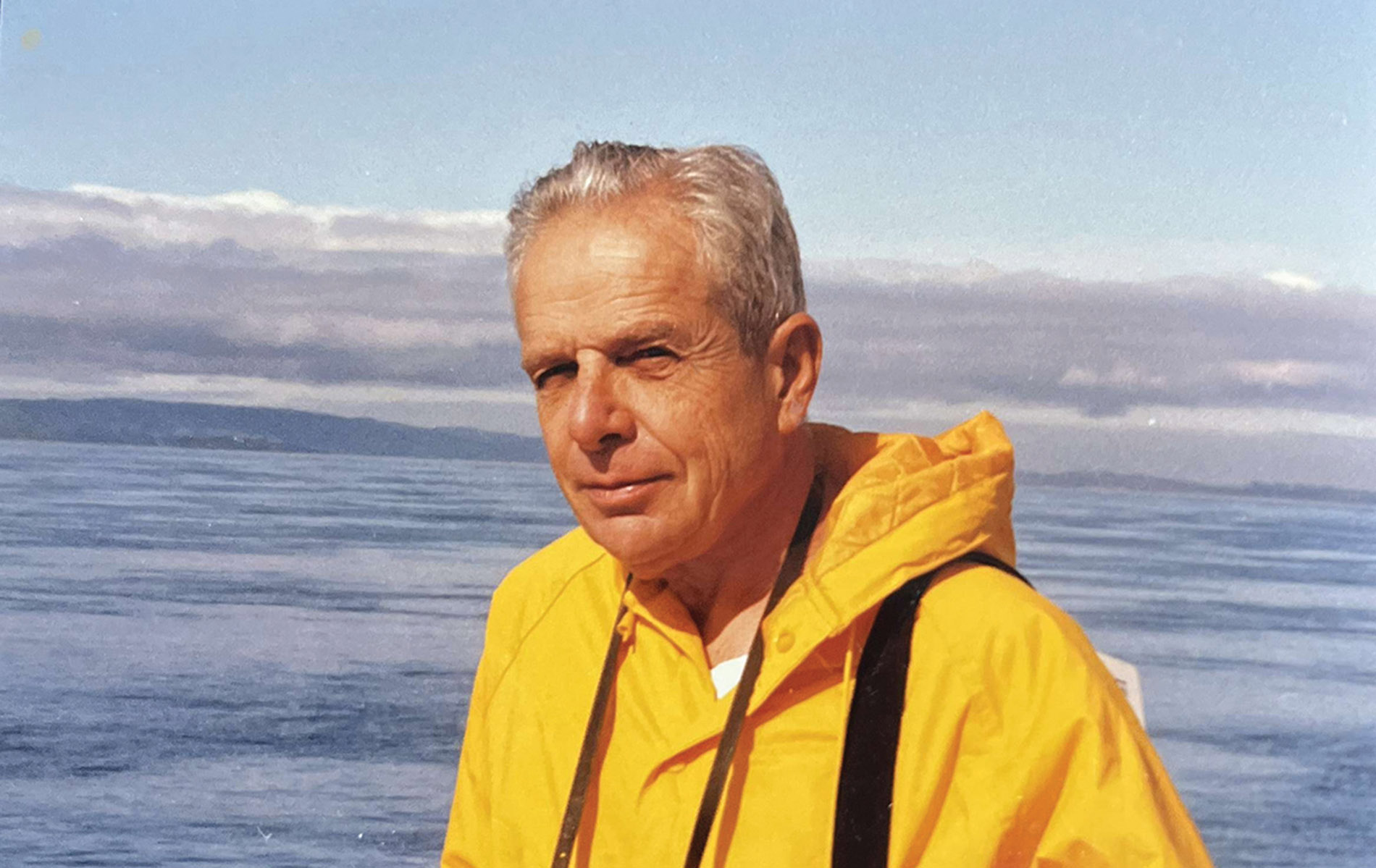
Professor Lea E. Williams, of Providence; Aug. 9, 2023. He was a professor emeritus of history who introduced the subject of Asian history to the University in 1956 and taught the subject for close to three decades before his retirement in the late ’80s. After an injury in basic training in 1943 discharged him from active military service, he joined the U.S. Department of State. His assignment to China changed his life. Assigned to the wartime capital of Chongqing and, after the war, Shanghai, his work as U.S. vice consul included granting visas to European Jewish refugees who had settled in China in the ’30s. Shortly after his arrival in Chongqing, he met his future wife, Daisy Shen. Following his departure from China in September of 1949, he matriculated at Cornell, receiving his BA in the new field of East Asian History. He went on to Harvard for his doctoral work. In the early ’50s, he joined Clifford Geertz’s historic anthropological expedition to Indonesia, where he spent two years, followed by research in Amsterdam at the Koninklijk Instituut voor de Tropen, or Royal Tropical Institute. His academic focus centered on overseas Chinese communities in Southeast Asia. He joined the Brown faculty in 1956, where he remained for the duration of his career, rising through the ranks to become a full professor of political science and later, a full professor of history. He founded the East Asian Studies Department, serving as its first chairman. During his tenure, he taught Brown’s introductory course on East Asian history, also giving numerous lectures at the U.S. Department of State, the former Woodrow Wilson School of Public and International Affairs at Princeton, the Fletcher School at Tufts, and the School for Oriental and Asian Studies (SOAS) in London. He was a visiting professor at the University of Singapore (1961-1963), a Fulbright-Hays Fellow at the University of Malaysia (1966-1967), and was versed in nine languages, several of which he spoke fluently, including Mandarin Chinese, Bahasa Indonesia, Dutch, and French. Brown’s Lea E. Williams Global Experiential and Teaching Award (GELT) was established in 2018 in his honor. An avid yachtsman, he spent summers sailing and racing in the waters around New England—when not renovating the 18th-century house he and his wife had bought on the East Side. He was a world traveler and an active member of the Providence Athenaeum for close to 50 years. After retiring in 1988, he served as a faculty lecturer on several Brown Travelers trips, as well as a guest lecturer for Society Expeditions that specialized in cruises to Antarctica and other remote and exotic destinations. He was predeceased by his wife, Daisy, and is survived by daughter Adrienne Covington ’77, ’77 AM ([email protected]); son William ’81; daughter-in-law Sally Mac Williams ’76; five grandchildren, including Caleb Williams ’14 and Isabelle Williams ’18; and two great-grandsons.
Georges Peter, of Brookline, Mass.; Jan. 11. He joined the Brown faculty in 1972 and retired after 34 years with the title of emeritus professor. During his career at Rhode Island Hospital and Hasbro Children’s Hospital, he established the board-certified division of pediatric diseases. He authored or coauthored more than 150 publications. His focus was committed to the prevention of pediatric infectious diseases through immunizations. He was an active member of the American Academy of Pediatrics (AAP), serving on the Committee on Infectious Diseases for 13 years. He edited five editions of the AAP’s Red Book (Report of the Committee on Infectious Diseases). He served on three federal committees: the Advisory Commission on Childhood Vaccines, the National Vaccine Advisory Committee, and the CDC’s Advisory Committee on Immunization Practices. He was a member of the World Health Organization’s Strategic Advisory Group of Experts on Immunization and he was a president of the Pediatric Infectious Diseases Society. An elected member of the Society of Pediatric Research, the American Pediatric Society, and the Infectious Diseases Society of America, he was also a member of the board of directors of the American Committee for the American Memorial Hospital in Reims, France. He was the recipient of numerous awards, including the Distinguished Physician Award of the Pediatric Infectious Diseases Society, the AAP Award for Lifetime Contribution to Infectious Diseases Education, and a special recognition award from the U.S. Department of Health and Human Services. Devoted to Harvard athletics, he managed the Harvard Stadium scoreboard for 29 years. In 2022 he received the President’s Special Award from the Harvard Club of Boston. He was a lifetime fan of the Boston Red Sox and he enjoyed sailing in the Lightning Class, in which he competed for more than 60 years, winning numerous regattas and sailing in national and international championships. He was a member of the Annisquam Yacht Club, Boston Harvard Club, Rhode Island Harvard Club, University Club, Niantic Bay Yacht Club, and Longwood Cricket Club. He is survived by his wife, Carolyn McClintock Peter ’76 MAT; a daughter; a son; and two grandchildren.
Richard D. Frary, of Barrington, R.I.; Oct.16. He matriculated at Amherst College and Boston University School of Medicine and completed his residency at Boston City Hospital before joining the U.S. Navy and being assigned to the Naval Hospital in St. Albans, N.Y. Upon discharge he opened an internal medicine and cardiology office in Rhode Island. He retired in 1994. He was a member of the American Medical Association and served several years on the Council of the Rhode Island Medical Society. He was a past president of the Bristol County Medical Society and a past president of the RI Chapter of the American Society of Internal Medicine. He also served on the boards of the RI Lung Association and the RI Chapter of the American Heart Association. He was an early faculty member of Brown’s medical school. In addition, he was a long term member of the Barrington Yacht Club and served several years on the Barrington Harbor Commission. He is survived by his wife, Joan, and three sons.
Timothy M. Empkie, of Providence, R.I.; Dec. 30. He had a distinguished career in medicine. He spent two years in the National Health Service Corps and spent a decade coordinating health programs in Central Europe and the Balkans. He joined the Department of Family Medicine in 1984 and later was director of predoctoral education and coordinated medical student exchanges between Brown and German universities in Rostock and Tübingen until 1993. He then was an assistant dean in the Warren Alpert Medical School and from 2002 to 2016 was an advisor to PLME students. In addition to teaching, he was a community activist who led efforts to stopconstruction of a stadium on park land in Providence and supported LGBTQ+ rights. Always a basketball fan, he served as faculty liaison for the men’s basketball program from 2017 until the time of his passing. He is survived by a sister and nieces and nephews.
Jack Wands, of Providence; Jul. 19. He was the Jeffrey and Kimberly Greenberg-Artemis and Martha Joukowsky Professor in Gastroenterology and professor of medical science at Brown’s Warren Alpert Medical School. He founded and developed the Rhode Island Hospital/Brown University Liver Research Center. His clinical interests included acute and chronic liver disease, cirrhosis, and gastrointestinal malignancies, particularly hepatocellular carcinoma and alcohol-induced liver disease and subsequent complications. He was an internationally renowned physician/scientist who had received numerous awards, including two N.I.H. merit awards. He was the recipient of 204 U.S. and international patents related to investigative work in hepatology, published more than 400 peer-reviewed manuscripts, and contributed to 56 textbooks. He is survived by two children, two grandchildren, and two brothers.
Bernard K. Waldrop, of Providence; Jul. 27. He taught at Brown for 40 years and retired as the Brooke Russell Astor Professor of Literary Arts and Comparative Literature in 2011. In addition to publishing his poetry, he was a translator whose work earned him the rank of Chevalier of Arts and Letters from the French Government. He cofounded Burning Deck literary press and was a cofounder of Wastepaper Theater, which produced original works. He was the recipient of the National Book Award in Poetry in 2009 for his trilogy Transcendental Studies. He is survived by his wife, Rosmarie, and six nieces and nephews.
Samir G. Moubayed, of Providence; July 1. He was an ob-gyn at OB-GYN Associates, Inc. After practicing medicine in Egypt for 10 years, he spent one year working for the United Nations in the Congo and immigrated to the U.S. in 1963. He was on the staffs of Women & Infants Hospital, Rhode Island Hospital, and Miriam Hospital. He was a clinical associate professor emeritus at Brown, a member of the Rhode Island Medical Society, and a Life Fellow of the American College of Obstetricians and Gynecologists. He is survived by his wife, Susan; three sons, including John ’84; a stepdaughter; nine grandchildren; and a brother.
George P. Landow, of Providence; May 31, after a two-year battle with metastatic sarcomatoid prostate cancer. He taught at Columbia, the University of Chicago, Brasenose College, and Oxford before coming to Brown to teach in the English and Art History departments. He served Brown for three years as chair of the faculty. From 2000 through 2002 he was the founding dean of the University Scholars Program at the National University of Singapore, after having been brought there as a distinguished visiting professor. He authored multiple books and articles on Victorian literature and art and saw several works translated into Italian, Spanish, Japanese, Korean, and Arabic. His academic honors included a graduate student Fulbright, two Guggenheims, two senior Fulbrights, and a fellowship at Cornell’s Society for the Humanities. He retired in 2012 and traveled the world lecturing until the pandemic. As editor-in-chief, Landow expanded the world-renowned Victorian Web, establishing a foundation and editorial board to ensure it would continue. He was also recognized as Master Model Railroader #737 by Little Rhody, his local National Model Railroad Association division. He is survived by his wife, Ruth; daughter Shoshana Landow ’98 MD, ’16 MPH; a son and daughter-in-law; a son-in-law; two grandsons; and a sister.
Robert B. Litchfield, of Westport, Mass.; Feb. 9. He was professor of history emeritus at Brown, where he taught from 1968 until his retirement in 2003. Before Brown, he taught at Dartmouth College. He graduated from Harvard and earned a PhD from Princeton. He published Emergence of a Bureaucracy: The Florentine Patricians, 1530-1790, which won the American Historical Association’s Marraro Prize in 1987. He also translated works of Italian historians. After participating in a project for comparative census analysis, he published an e-book, Florence Ducal Capital 1530-1630, in 2004, which detailed the city’s changing urban geography. He is survived by his husband, W. Gardner Chace.
Mary D. Lekas, of East Providence, R.I.; Jan. 24. “Dr. Mary,” as she was fondly called by those who knew her, was a practicing otolaryngologist specializing in head and neck surgery. Her professional career included private practice with privileges at Rhode Island Hospital, St. Joseph’s Hospital, the Veterans Administration Hospital and Miriam Hospital. Her career featured many firsts, such as being the first woman to head the otolaryngology department at Rhode Island Hospital as chief surgeon from 1983 until she retired in 1996. She was also the first woman to be professor of clinical otolaryngology at Brown’s Warren Alpert Medical School and, in 1980, she was named the first woman to be elected president of the New England Otolaryngological Society. In 1992 Dr. Mary was named Rhode Island’s Woman Physician of the Year, and she was awarded the president’s citation from the Triological Society in 1993. She was past president of the Providence Medical Association and was recipient of the Providence Medical Association’s Distinguished Service Award. She won numerous recognitions and accolades during her 60-year career. She was an active member of the Annunciation Greek Orthodox Church in Cranston, R.I., singing in the church choir and serving as a member of the Good Samaritan Ladies Philoptochos Society. In recognition of her service to the Annunciation Church, she was named the 2009 recipient of the Metropolis of Boston Laity Award. She is survived by nieces and nephews.
R. Robert Barone, of Johnston, R.I.; Apr. 8. After graduating from Providence College in 1952 and University of Bologna School of Medicine in 1957, he completed a residency in obstetrics and gynecology at St. Raphael Hospital in New Haven, Conn. His career as an ob-gyn consisted of more than 40 years practicing in Johnston and Providence. In addition, he directed the U.S. Government Maternal and Infant Care program at St. Joseph’s Hospital and was on the midwifery board for 10 years. He was a diplomate of the American Board of Obstetrics and Gynecology and was a member of the New England Ob-Gyn Society, the Rhode Island Medical Society, and the Providence Medical Association, as well as a clinical instructor at both Tufts Medical School and Brown’s Warren Alpert Medical School. He was past president of the University of Bologna Alumni Association and an active member of the Italian American Historical Society of Rhode Island. He was well read and especially liked reading histories and biographies. His interests were eclectic and he enjoyed sharing his stories and ideas. He is survived by his wife, Marie; five children and their spouses; 10 grandchildren; and a great-grandchild.
Frank G. Rothman, Wayne, Pa.; Oct. 23, from bladder cancer. He arrived in the U.S. in 1944 and matriculated at the University of Chicago, then went to Harvard for his doctorate. After two years of service in the U.S. Army, where he was assigned to the Walter Reed Army Institute of Research, he moved to the University of Wisconsin—Madison and became a postdoctoral fellow in the departments of chemistry and bacteriology. He broadened his training in molecular genetics at MIT (1957-1960), working in the lab of Cy Levinthal on the alkaline phosphatase gene of the bacterium E. coli. In November 1960, he was a visiting fellow at the Institut Pasteur in Paris, where fundamental discoveries were being made on gene regulation; in 1961, he joined the faculty at Brown and rose through the ranks as assistant professor (1961-1965), associate professor (1965-1970), professor of biology and then dean of biology (1970-1990), teaching courses in biochemistry, genetics, molecular biology, and aging. He was the recipient of numerous teaching awards. His work on the studies of bacteria and Dictyostelium was funded by nine consecutive grants from NSF between 1961 and 1984. In 1987, he began to study the biology of aging in the nematode Caenorhabditis elegans. He was published in many journals including Cell, Nature Biotechnology, Journal of Cell Biology, Genetics, Journal of Molecular Biology and others. From 1990 to 1995, he served as Brown’s Provost, eventually returning to faculty duties until he retired in 1997. In 1994, he was elected a fellow of the American Association for the Advancement of Science and in 1995, the Frank and Joan Rothman Commencement Forum lecture was established by President Vartan Gregorian recognizing the career-long contributions Frank and his wife made to Brown. In retirement, he remained active with the Progeria Research Foundation and with Project Kaleidoscope on undergraduate science education. He is survived by four children, including daughter, Maria Rothman Boyd ’82 and her spouse Taylor Boyd ’86; five grandchildren, including granddaughter Elizabeth Rothman ’13; and grandson Alex Rothman’10; and one great-grandchild. A celebration of life is planned for Oct. 27 at 4:oo in Manning Chapel. For more information, contact Maria at [email protected].
Arnold S. Rosenbaum, of Portsmouth, R.I.; Dec. 2. He served as a surgeon and lieutenant commander in the Commissioned Corps of the U.S. Public Health Service during the Vietnam War and later as a general surgeon at the Miriam Hospital in Providence for more than 30 years. While there, he was also a clinical assistant professor of surgery at the Warren Alpert Medical School and recipient of the distinguished teacher award. He graduated from both Ursinus College and Jefferson Medical College at Thomas Jefferson University. During his medical residency he helped develop the heart-lung pump used in open-heart surgeries and created a synthetic aortic seal. He was a musical prodigy and at just 13 years of age he played a trumpet solo with the Philadelphia Orchestra and famed conductor Eugene Ormandy. He also played trumpet and percussion for the Monte Carlos, a Philadelphia band, in the 1960s. An avid outdoorsman, he enjoyed sailing, hiking, fishing, and especially skiing with his family in New Hampshire and traveling the world with his wife. He is survived by his wife, Judith; three children; seven grandchildren; three nieces; and a nephew.
Meenakshi Narain, of Providence, R.I.; Jan. 1, following a brief illness. She was a high energy experimental physicist who joined the Brown faculty in 2007 after spending nine years at Boston University. She served as Brown’s physics department chair from July 1, 2022, the first woman to hold that title. She had been involved with the Compact Muon Solenoid (CMS) experiment and was elected chair of the USCMS collaboration board from June 2018 until June 2022, subsequently being the first female collaboration board chair, and she was a leader of the CMS group from Brown. She was a founding chair of the CMS Diversity Office and a leader of the CMS Women’s Forum. In this capacity, she represented the U.S. members collaborating on the CMS experiment. She was instrumental in discovering the top quark, the heaviest fundamental particle, in 1995. She authored more than 850 peer-reviewed studies in leading physics journals and gave numerous public lectures and invited conference presentations. In 2000, she received both an outstanding junior investigator award from the U.S. Department of Energy and a National Science Foundation early career development award. In 2007, she was elected a fellow of the American Physical Society, and in 2012, she was elected a fellow of the LHC Physics Center at Fermilab. Her outreach efforts were numerous, including organizing and founding the Big Bang Science Fair at WaterFire Providence, a public outreach event that brought hands-on science experiences to local kids and community members. She is survived by her husband, Ulrich Heintz, a fellow professor of physics at Brown, and two sons.
Anthony Lancaster, of Providence; Dec. 10. He taught economics at Brown and served as department chair from 1999 to 2002. He received his BA from Liverpool University in 1959 and his PhD from the University of Cambridge in 1964. He taught at the University of Birmingham, where he was the thesis advisor for noted British statistician Andrew Chesher, and at the University of Hull before joining the Brown faculty in 1986. He was a visiting professor in the economics department at Harvard University in 1992. He was instrumental in establishing the field of econometrics at Brown through teaching and advising. He arrived at Brown with two of his graduate students from Hull, one of whom was Guido Imbens, who was awarded the Nobel Prize in economics in 2021. He published papers in microeconometrics in the major economics and statistics journals. His publications also included an influential monograph, The Econometric Analysis of Transition Data (1990). Later in his career he wrote a textbook, Modern Bayesian Econometrics (2003). He was elected a fellow of the Econometric Society in 1991. He is survived by his wife, Jane Heawood Lancaster ’93 AM, ’98 PhD; a daughter; two sons; seven grandchildren; and two great-grandchildren.
R. Ross Holloway, of Carrboro, N.C.; June 20, 2022. In 1964, after two years of teaching at Princeton and the University of North Carolina at Chapel Hill, he joined the classics department at Brown and rose from assistant professor to associate professor in 1967 and full professor in 1970. In 1978, he teamed up with Brown art historian Rolf Winkes and founded the Center for Classical Archaeology and Art at Brown. He was awarded a named chair as Brown’s Elisha Benjamin Andrews Professor in 1990. In 1989 to 1990, the Archaeological Institute of America selected him as their Charles Eliot Norton lecturer and, in 1995, awarded him the gold medal for distinguished archaeological achievement, its highest honor. During the course of his career, he published 33 books, 151 articles, and 50 book reviews. He directed four major excavations in South Italy and Sicily. He promoted the publication of such substantial fieldwork through the series Archaeologia Transatlantica. He was a fellow of various professional organizations and a member of the editorial boards of the Journal of Field Archaeology and the American Journal of Archaeology. In 1984, Prof. Martha Sharp Joukowsky joined him at the Center; he was its director from 1978 to 1987 and again from 1994 to 2000. The Center further expanded in 2006 and became the Joukowsky Institute for Archaeology and the Ancient World. He is survived by two daughters and five grandchildren.
Norman Fruchter, of Brooklyn, N.Y.; Jan. 4, caused by complications of injuries sustained when he was struck by a car on Dec. 22 while crossing the street near his home. After college, he taught high school students in England on a Fulbright scholarship before returning to Newark to join Tom Hayden and other political organizers from Students for a Democratic Society to teach high school. He then established the Newark Community Union Project and, with Robert Machover, filmed Troublemakers, a documentary film about civic action in Newark. He published two novels, Coat Upon a Stick and Single File. He founded and directed the Center for Education and Community at the Annenberg Institute for School Reform at Brown prior to being appointed to the New York City Panel for Educational Policy, where he worked to guarantee that all students receive a sound basic education regardless of their race, ethnicity, class, or income. He founded and was director of the Institute for Education and Social Policy at NYU and headed the Ford Foundation’s National Dropout Prevention Program. He is survived by his wife, Heather; a daughter; a son; four grandchildren; four stepchildren; and four step-grandchildren.
Dr. John DiGiovanna, of Bethesda; Feb. 6, of metastatic pancreatic cancer. In addition to the practice of dermatology, he was a senior research physician at the National Cancer Institute, where his research involved inherited skin disorders, particularly those causing skin cancer. He was involved in pioneering studies of use of oral retinoids for treatment of acne and for prevention of skin cancer. He also served as head of the Dermatology Clinical Research Unit in the National Institute of Arthritis and Musculoskeletal and Skin Diseases. He was a longtime consultant to the Federal Drug Administration over three decades. In addition, he served as the director of dermatopharmacology and professor in the department of dermatology at the Warren Alpert Medical School, where he was an investigator on more than 70 clinical trials. He coauthored more than 200 scientific articles and 33 book chapters, and he lectured widely at national and international conferences. He was a member of several prestigious dermatology societies, including the American Dermatological Association, the American Academy of Dermatology, and the Washington, D.C. Dermatology Society. He enjoyed traveling, gardening, the theater, being with his close friends and endlessly talking about science and medicine. He is survived by his husband, Julian Trail; two sisters; a brother; and several nieces and nephews.
Duane Bishop of Providence; Feb. 7, from multiple system atrophy. He was a general practioner and medical director of Mount Royal College in Calgary prior to moving to Rhode Island in 1978 to become the clinical director of Butler Hospital and an associate professor at Brown. He later worked at Rhode Island Hospital as a psychiatrist specializing in rehabilitation and then at Southern New England Physicians Associates, where he served as president and CEO. During his career he wrote more than 200 peer-reviewed articles with a clinical focus being on family relationships. After his diagnosis of MSA, he would describe the mechanisms of his disease and how it affected him in order to help those around him to better understand it. He continued to garden, sculpt, travel and play golf, demonstrating determination to slow down disease progression. He is survived by his wife, Jody; three children; and two grandchildren.
John H. More, of Washington, D.C.; Sept. 29. From 1969 to 1975, he was a professor of classics at Brown. His research focused on slavery and guilds in ancient Rome. He spent the 1974-75 academic year at the Intercollegiate Center for Classical Studies in Rome and visited ruins in Italy, Greece, and Tunisia. After receiving his law degree in 1979 from Harvard Law School, he worked for several firms in Washington, D.C., specializing in corporate, international, banking, and environmental law. He later started his own firm. After retiring from the practice of law, he devoted his time and energy to organizations that shared his passions for social justice, human rights, and the environment. He was a cofounder of the Washington Interfaith Network, a multi-racial, multi-faith, district-wide citizens’ power organization, rooted in local congregations. He enjoyed spending summers on Cushing Island in Maine, sailing, traveling, and attending the Shakespeare Theater. He is survived by his wife, Livezey; two children and their spouses; four grandchildren; and a brother.
Ferdinand T. Jones, of Providence; Sept. 10, after contracting pneumonia. He was professor emeritus of psychology at Brown. After graduating from Drew University and serving in the U.S. Army, he earned his PhD from the University of Vienna. He then returned to the New York area, playing an active part in the community mental health movement in the 1960s and taking a variety of positions that bridged social justice and psychological concerns. In 1968 he joined the faculty at Sarah Lawrence College and in 1972 he accepted a position at Brown, dividing his time between teaching in the psychology department and doing clinical work with students. He became director of Brown’s Department of Psychological Services in 1980; he retired from that position in 1992 and focused on his teaching role in psychology, developing courses on cultural mistrust, the cultural context of psychotherapy, and human resilience. In the Warren Alpert School of Medicine, he established seminars on minority issues for clinical psychology interns and postdoctoral fellows. He was coeditor—with his brother, Arthur C. Jones—of a volume of essays, The Triumph of the Soul: Cultural and Psychological Aspects of African-American Music. He was on the Board of Trustees of Women and Infants Hospital and the Board of Directors of the Center for Reconciliation RI. He served as president of the American Orthopsychiatric Association from 1989 to 1990. He was a visiting professor at several universities, including Oberlin College, Sarah Lawrence College, the University of Cape Town, South Africa, and the University of Dar Es Salaam, Tanzania. He is survived by two daughters, a granddaughter, two great-grandsons, and a brother.
Barbara Finegan Monahan, of Providence; May 11. After teaching Russian briefly at Cranston East High School (R.I.), she served as senior lecturer from 1968 to 1992 in the Brown University Slavic Department, where she inspired many of her students to pursue careers using the language skills she imparted so creatively. In 1991, she was awarded the Excellence in Teaching Award from the American Association of Teachers of Slavic and East European Languages. She was the author of A Dictionary of Russian Gesture (1983), an introduction and guide to the nonverbal component of the Russian language, and Russia’s Children, Our Children (1996), an exposé of the incidences of childhood cancers around nuclear power stations in Russia and in the United States. She was best known to her students as “babushka,” a classroom title she preferred to Professor Monahan. For decades, she challenged U.S. foreign and military policy from letter writing to street protesting. She also remained active promoting equality and equal access to healthcare and other human needs services.
Philip Lieberman, of Providence; July 12. He began his academic career in 1967 at UConn. In 1974 he joined the faculty at Brown, where he taught until 2012. At Brown he explored phonetics and the evolution of language and human cognition, publishing eight books and more than 150 articles over six decades. His research consisted of pioneering phonetics experiments, studying the vocal tracts of newborn humans, and traveling to the Mount Everest base camp to study the effect of high altitude on climbers’ cognitive abilities, part of a project to prepare future astronauts for a mission to Mars. He was an avid photographer and his work has been displayed in solo and group shows and is included in the RISD Museum collection. He and his wife traveled extensively and he contributed photographs to the travel books she authored. He was happiest hiking a mountain trail with his wife. He was a fellow of the American Association for Advancement of Science. He is survived by his wife, Marcia; two sons and daughters-in-law; three grandchildren; and a sister.
Geoffrey Ribbans, of Providence; Mar. 29. Before coming to Brown in 1978 as the newly appointed William R. Kenan Jr. Professor of Hispanic Studies, he taught at Belfast, St. Andrews, and Sheffield universities and was the Gilmour Professor of Spanish at Liverpool University for 15 years. He was a noted author of several books and numerous articles and taught and promoted Catalan language and culture. He was named to emeritus status in 1999. He is survived by a daughter, a son and daughter-in-law, a stepdaughter, and two grandsons.
Henry G. Magendantz, of Providence; Jan. 27. He was an obstetrician-gynecologist for Rhode Island Group Health Association and Harvard Pilgrim Health and later worked at OB/GYN Associates in Providence before entering private practice. He was a fertility specialist and an attending at Miriam Hospital and Women and Infants Hospital. He was also an emeritus clinical associate professor of obstetrics and gynecology at the Warren Alpert Medical School. He was a deacon at Central Congregational Church and a member of several organizations. He is survived by his wife, Kathy; four children and their spouses; nine grandchildren; and a sister.
Laura Durand, of Providence; Sept. 4, 2021, after a short illness. She was a professor emerita of French Literature. She was a graduate of Miami University (Ohio) and won a Fulbright grant to spend a year in Grenoble, France, studying French literature and earning a certificate in phonetics. She then attended Northwestern University for her master’s degree and met her future husband. Together they spent a year in Japan during his military service before going together to the University of Michigan for their PhD studies. They moved to Providence in 1960 when her husband became a professor at Brown. She, too, became a professor at Brown despite pre-existing policies prohibiting spouses from being on the faculty. She was very active in protesting unfair treatment of women at the University and chaired a committee of the local chapter of the American Association of University Professors on the hiring of women at Brown. In addition to teaching, she served as an associate dean of the graduate school, department chair, and dean of special studies. She was a member of the Wednesday Club detailing group, enjoyed music, and was an avid reader. In retirement she played golf, learned to paint, sang in choirs, and traveled. Phi Beta Kappa. She is survived by her husband, Frank; sons David ’83 and John ’87; two daughters-in-law, including Kate
Hanley Durand ’87; and three grandchildren, including Laura Durand ’16.
Albert E. Dahlberg, of Providence; Mar. 1, of cerebrovascular disease. He devoted himself to scientific research, helping others, and enjoying his family. With a quick wit and a distinctively kind and quirky sense of humor, he enjoyed being with friends and colleagues from around the world. He particularly loved puns and spinning fanciful tales of his fictional collaborator George Q. Pennable, who was noteworthy for his “useless suggestions and pointless comments” but credited nonetheless in many of his publications. An avid Brown Bears football fan, he enjoyed attending their games and serving as a football recruiter and faculty advisor to the team for many years. A graduate of Haverford College, he received his MD and PhD from the University of Chicago. After completing a pediatric internship at the University of Chicago hospitals, he served during the Vietnam War from 1967 to 1970 in the Public Health Service at the National Institutes of Health (NIH) in Bethesda. While living in the Washington D.C. area, he and his wife marched in the White House vigil to protest the Vietnam War. They also joined the Society of Friends meeting and became lifelong Quakers. In 1970 they moved to Aarhus, Denmark, for two years while Al continued his research in biochemistry. In 1972 he received an appointment as an assistant professor of medical science at Brown. He became a full professor in 1982. During his academic career he was a visiting professor at University of Wisconsin-Madison; University of Copenhagen, Denmark; and University of New South Wales, Sydney, Australia. He received 43 years of uninterrupted funding from the NIH for his research, mostly focused on the structure and function of the prokaryotic ribosome. He coauthored two books, wrote chapters in 14 books, and published more than 120 academic journal articles on the topic of ribosomes. He served on several national and international scientific boards, the faculty executive committee at Brown, and with several local nonprofits. He was also the medical director of Beech Tree Laboratory, a founder of Milkhaus Laboratory, and on the board of directors at the Monroe Institute in Virginia. He is survived by his wife, Pamela; three children; two daughters-in-law; six grandchildren; a sister; and a brother.
Walter R. Thayer Jr., of Riverside, R.I.; Jan. 8. He graduated from Tufts University Medical School and became known as one of the nation’s leading experts on Crohn’s and other gastrointestinal diseases. He served as head of the gastroenterology department at Brown’s Warren Alpert Medical School and chief of gastroenterology at Rhode Island Hospital, positions he held for 30 years. Upon his retirement in 2004, he was proud to cut the ribbon at the Walter R. Thayer Inflammatory Bowel Disease Laboratory at Rhode Island Hospital. He was awarded the distinguished clinician award by the American Gastroenterology Association and the humanitarian of the year award by Rhode Island and New England chapters of the Crohn’s & Colitis Foundation of America. He was also the recipient of the W.W. Keene Award from the Brown Medical Alumni Association. He conducted significant research into the causes of and treatment for Crohn’s disease and ulcerative colitis. He trained numerous doctors with an emphasis on recruitment and support of doctors of color. In retirement, he volunteered at the Providence Veterans Affairs Medical Center and mentored Brown medical students. He was recognized as teacher of the year in 2016 by Brown’s Medical School. He also volunteered at the Rhode Island Hospital GI clinic. He survived a small plane crash in Canada while providing medical care to Indigenous people and delivering babies as part of the Grenfell Mission; ran from a grizzly bear in Alaska; and broke his leg while descending Carter Dome on Mount Washington. He was passionate about preservation and served on the Pomham Rocks Lighthouse Committee; he was also an active member of the Rhode Island Wildflower Society, subsequently earning a botany degree from URI. An avid swimmer, he swam in the seven seas and five oceans and traveled six continents. He also was a cyclist who participated in century bike rides throughout the U.S. He is survived by a daughter and son-in-law, a son and daughter-in-law, four grandchildren, three great-grandchildren, a sister and brother-in-law, and several nieces and nephews.
Harold Wanebo, of Bristol, R.I.; Nov. 27. He was emeritus professor of surgery in the surgical oncology section at Roger Williams Medical Center. After receiving his medical degree from the University of Colorado Denver School of Medicine in 1961, he interned at Cornell and served his residency at UC San Francisco and at Memorial Sloan Kettering Cancer Center, where he trained in tumor immunology. He served in the U.S. Army during the Vietnam War and earned the Bronze Star and Army Commendation Medal with Valor. He was affiliated with numerous professional organizations and authored more than 290 peer reviewed articles. He was a professor of surgery and director of surgical oncology at Brown. He founded his own lab, Chemo Enhanced, where he enjoyed working on cancer research. He was the recipient of awards and commendations and Roger Williams Medical Center endowed a chair in his name. He is survived by his wife, Claire; three children and their spouses; seven grandchildren; and three brothers.
John R. Coleman, of Providence, R.I.; Dec. 14. He researched and taught molecular and cellular biology at Brown. He was a participant in the Tougaloo-Brown Partnership and joined in numerous other initiatives to expand opportunities to people otherwise excluded. He is survived by his wife, Annette; three children; two grandchildren; and a sister.
Edelgard B. Morse, of Providence; Sept. 13. She attended the University of Cologne, where she received her PhD and met her future husband. Soon after moving to the U.S. she accepted a post-doctoral position at Wesleyan University. Later she led the chemistry department at the University of Connecticut, then became an assistant professor at Northwestern University. She spent many years volunteering in the Providence public schools and was a docent at RISD before becoming a senior lecturer in chemistry at Brown from 1977 to 2005. She enjoyed backpacking through many national parks with her husband and children, attending opera performances at the Met, reading, cooking, and traveling throughout Europe visiting family and friends. She is survived by her husband, Ted; two children, including daughter Karin Morse ’84 and her spouse; a son and daughter-in-law; and two grandchildren.
Christine A. Biron, of Providence, R.I.; Oct. 16. She earned a bachelor’s degree in biochemistry from UMass Amherst and a PhD in microbiology and immunology from the University of North Carolina Chapel Hill. After postdoctoral fellowships at the Scripps Clinic and Research Foundation, the Karolinska Institute, and the University of Massachusetts, she began her faculty appointment at Brown as an assistant professor of medical science in 1987. In 1996, she was appointed the Esther Elizabeth Brintzenhoff Professor of Medical Science. She served as director of the pathobiology graduate program from 1995 to 1999, and then as chair of molecular microbiology and immunology from 1999 to 2009. Her work has been foundational to the development of many novel therapies in treating disease. She was honored to be elected a fellow of the American Association for the Advancement of Science in 2002, the American Academy of Microbiology in 2009, and a distinguished fellow of the American Association of Immunology in 2021. She was invited to lecture all over the world and served on the Board of Scientific Counselors for the National Cancer Institute and the National Institute of Allergy and Infectious Disease. She has been honored with a permanent lectureship at Brown. During the course of her career, she published 175 articles. She was an amateur photographer and enjoyed singing soprano in choirs. She is survived by three sisters and brothers-in-law, a brother, and 11 nieces and nephews.
Julius W. Kling, of Providence; Aug. 8. He accepted a teaching and research position in the psychology department at Brown in 1947. He served as department chair for more than 10 years and during his tenure received numerous honors for his academic accomplishments. He retired in 1989. He was a veteran of World War II and recipient of two Purple Hearts for his service. He is survived by four children, two grandchildren, and three great-granddaughters.
Michael Silverman, of Concord, Mass.; Aug. 29. He joined the Brown faculty in 1973 as an assistant professor in the department of English. He retired from the department of modern culture and media in 2010 and is survived by his partner of 30 years, E.J. Anderson ’81.
Dr. Rocco Marzilli, of East Providence and Jamestown, R.I.; Aug. 18. He graduated from Providence College as a member of Alpha Epsilon Delta and served in the U.S. Army for two years during the Korean conflict. In 1957, he enrolled at the University of Bologna School of Medicine in Bologna, Italy. Upon returning to the U.S. he and his wife settled in East Providence, where they would remain for more than 50 years. He completed his residency at the VA Hospital in Providence and remained on staff until 1968, when he decided to enter private practice specializing in gastroenterology. He was on staff at St. Joseph’s Hospital and Rhode Island Hospital until 2008. He was the first medical director for Waterview Villa Rehabilitation and Health Care Center and continued in that role until 2010. He was also on the clinical staff at the Warren Alpert Medical School. He served as medical advisor for the Rhode Island Chapter of the National Foundation of Ileitis and Colitis (NFIC) while also serving on the board of directors of the Colitis and Ileitis Association, and he was the president of the Rhode Island Gastroenterological Society. He was named Physician of the Year in 1983 by NFIC. He is survived by a daughter and son-in-law, a son, a grandson, and a sister.
L. Perry Curtis, of North Pomfret, Vt.; Apr. 9, 2019. Emeritus professor of history at Brown. During the course of his 40-year teaching career, he held appointments at Princeton and at UC Berkeley and retired from Brown in 2001. He was an American scholar who made a significant contribution to the study of Irish history. He published numerous works relative to Irish history, including Apes and Angels, Coercion and Conciliation in Ireland, and The Depiction of Eviction in Ireland, 1845-1910. He frequently visited Ireland, both for research purposes and for pleasure. He was a member of the Kildare Street and University Club for many years. In 2011 he lectured at the National Library of Ireland to a capacity audience and in 2015 he addressed the Parnell Summer School on “Rethinking the Origins of the Land War in Ireland.” His last visit to Ireland was in March 2018 for the opening of the Coming Home exhibition of art from the collection of Ireland’s Great Hunger Museum at Quinnipiac University in Connecticut. He is survived by his wife Alison; a daughter; and a son.
Dan W. Brock, of Newton, Mass.; Sept. 26. Charles C. Tillinghast, Jr. University Professor and professor emeritus in philosophy. Professor Brock joined the philosophy department at Brown in 1969, where he became professor of philosophy and biomedical ethics and director of the Center for Biomedical Ethics. He was chair of the department from 1980 to 1986 and eventually received a joint appointment in the medical school. During his 33 years at Brown, he established himself as a leading authority in bioethics and medical ethics. He served as staff philosopher on the President’s Commission for the Study of Ethical Problems in Medicine in 1981 and in 1993 was a member of the Ethics Working Group of the Clinton Task Force on National Health Reform. He left Brown in 2002 to join the department of clinical bioethics at the National Institutes of Health as senior scientist and head of the section on public health. In 2004, he became the Frances Glessner Lee Professor of Medical Ethics at Harvard Medical School. He served as an advisor to the Office of Technology Assessment of the U.S. Congress, the Institute of Medicine, the National Bioethics Advisory Commission, and the World Health Organization. Over the course of his career, he authored six books and more than 150 articles establishing a high standard of analytical rigor in bioethics. He was president of the American Association of Bioethics and a founding board member of the American Society for Bioethics and Humanities. He was an avid reader and is survived by his wife, Chon, formerly known as Charlene Stephens ’62; a daughter; and two sons, including David ’02.
Sergei Khruschev, of Cranston, R.I.; June 18. He was a retired senior fellow at the Watson Institute, the son of former Soviet Premier Nikita Khrushchev, and a rocket engineer and computer scientist who developed guidance systems for rockets and cruise missiles. As a rocket engineer and computer scientist in the Soviet Union, he played an active role in developing guidance systems for missiles, including cruise missiles launched from submarines from 1958 to 1968. He then took up writing and lecturing. His areas of expertise included Soviet economic and political reforms, U.S./Soviet relations from 1950 to 1964, and the history of the Soviet space program. In addition, he helped his father write his four-volume memoir in Russian and then translated it into English. He moved to Rhode Island in 1991, shortly after the dissolution of the Soviet Union, to lecture at Brown as a visiting scholar on the Cold War. He remained a senior fellow at the Thomas J. Watson Institute for International and Public Affairs and a fellow at Harvard’s John F. Kennedy School of Government. He also taught at the Naval War College in Newport, R.I. While at the Watson Institute, he taught, lectured extensively around the country, and wrote three books about his father and the Cold War. He became a naturalized U.S. citizen in 1999, though he also maintained his Russian citizenship. He is survived by his wife, Valentina; a son; and a granddaughter.
Sture K.F. Karlsson, of Charlottesville, Va.; July 17. He received his PhD in engineering from Johns Hopkins University in 1958 and after a year as a visiting researcher at the Royal Institute of Technology in Stockholm, Sweden, he joined the Brown faculty in the engineering department. He taught in the area of fluid mechanics and thermodynamics. During those years, he was also a visiting professor at the Royal Institute of Technology in Stockholm, Chalmers University of Technology in Gothenburg, Sweden, and the National Cheng Kung University in Tainan, Taiwan. During his tenure at Brown, he published numerous research articles and became an active member of the Brown Orienteering Club and the New England Orienteering Club. He is survived by daughter Lynn-Marie Karlsson ’74; a son and daughter-in-law; and several nieces and nephews.
Thomas G. Breslin, of Bristol, R.I., and Delray Beach, Fla.; Mar. 7. He was a urological surgeon with privileges at Rhode Island Hospital, Fatima Hospital, and St. Joseph’s Hospital and successfully ran his private practice, Breslin Urosurgical, for 31 years. He was appointed to the Rhode Island Board of Medical Review and was a clinical instructor at Brown’s Warren Alpert Medical School. He was one of the first to practice groundbreaking surgical techniques in Rhode Island, including cryosurgery and lithotripsy. He was active in his community as past president of the Bristol Highlands Improvement Association, a member of the Harbor Commission, and fleet surgeon and former board member of the Bristol Yacht Club. He enjoyed numerous Block Island Race weeks, Newport to Bermuda races, and cruising with his family aboard his yacht, the Watch. He was a veteran of the U.S. Navy and is survived by his wife, Carolyn; five children; 11 grandchildren; and brother, Robert H. Breslin ’50.
Donald R. Maxson, of Barrington, R.I.; Feb. 13. He graduated from Bowdoin College in 1944, worked at the U.S. Naval Research Laboratory in Washington, D.C. for three years, and graduated with a PhD in physics in 1954 from the University of Illinois. He worked at Princeton before joining the Brown faculty as an assistant professor. He worked for 35 years until his retirement in 1994. At that time, he was the only experimental nuclear physics professor on staff at Brown. He enjoyed summering in Wellfleet, Mass., where he sailed his 17-foot Explorer, the first and only sailboat he ever owned. In addition to sailing, he enjoyed reading and listening to Mozart. He is survived by his companion, Nancy Carlson; a stepdaughter; a stepson; four step-grandchildren; and two step-great-grandchildren.
Charles C.J. Carpenter Jr., of Falmouth, Me., formerly of Barrington, R.I.; Mar. 19. After graduating from Princeton and Johns Hopkins University School of Medicine, he worked at the National Institutes of Health in Bethesda, in India, at Johns Hopkins and at Case Western Reserve University Hospital in Cleveland. In 1986 he joined the Brown faculty as a professor of medicine and chief physician at Miriam Hospital. He served as director of the Brown University International Health Institute and the Lifespan/Tufts/Brown Center for AIDS Research. He introduced a program to care for Rhode Island state prisoners with HIV, worked with colleagues in India and the Philippines to reduce the spread of HIV, and chaired a treatment subcommittee to evaluate the President’s Emergency Plan for AIDS Relief, which took him to several countries in Africa. He retired in 2015. He was president of the Association of American Physicians, chair of the American Board of Internal Medicine, and co-editor of seven editions of Cecil Essentials of Medicine. He was the recipient of numerous honors, including Brown’s Rosenberger Medal, the 2007 Robert H. Williams Distinguished Chair of Medicine Award from the Association of Professors of Medicine, and the International Antiviral Society–USA Lifetime of Leadership Award in 2012; in 1998, he received the Order of the Sacred Treasure from the Emperor of Japan for his contributions to the U.S.-Japan Cooperative Medical Science Program. He enjoyed fishing, tennis, biking with his children and grandchildren. He is survived by his wife, Sally; three sons; seven grandchildren; two sisters; and a brother.
F. Donald Eckelmann, of Brevard, N.C.; Dec. 7. He began his academic career in 1957, when he joined the Brown faculty as an assistant professor in the department of geologic sciences, and later rose to the rank of professor and served as chair of the department and as Dean of the College. Subsequently he was a faculty member at the University of Georgia and George Mason University. In 1985, he was appointed professor and academic dean of the College of Arts and Sciences at Ohio University, from which he retired in 1994. He is survived by a daughter and son-in-law, a son and daughter-in-law, and six grandchildren.
A. Hunter Dupree, of Cambridge, Mass. and Squirrel Island, Me.; Nov. 30. He received his master’s from Harvard in 1947 and completed his doctoral thesis on the life and work of Asa Gray, the leading American botanist of the nineteenth century, in 1952 while teaching history at Texas Technological College. In 1953, he became a research fellow at the Gray Herbarium at Harvard to continue his work on Asa Gray. His planned biography was interrupted when the National Science Foundation selected him to lead a research project on the history of science in the federal government. Sponsored by the American Academy of Arts and Sciences, his findings were published in the 1957 book Science in the Federal Government: a History of Policies and Activities to 1940. On completion of the book, he devoted more time to his research on Gray and in 1959 published Asa Gray, 1810-1888. He joined the history department at UC Berkeley in 1956. During his tenure at Berkeley, he held various administrative posts, including assistant to the Chancellor and director of the Bancroft Library. He was a firsthand witness to the Free Speech Movement of 1964. Throughout the 1960s he held numerous advisory posts with the federal government and scientific institutions. He was a member of the Library of Congress Committee, was a consultant to the National Academy of Sciences Committee on Science and Public Policy (COSPUP), and drafted its report, Federal Support of Basic Research in Institutions of Higher Learning (1964). He was on the NASA Historical Advisory Committee and Atomic Energy Commission Historical Advisory Committee, and he also served on the House of Representatives panel on Science and Technology, where he gave advice on the role science and technology could play in addressing critical national and global problems. He became the George L. Littlefield Professor of History at Brown in 1968 and he began to write extensively on the social history of measurement. Later he served a year as one of the first group of fellows of the National Humanities Center. In the 1970s, he held positions in numerous professional organizations, including the Smithsonian Council (1975-85) and secretary of the American Academy of Arts and Sciences (1973-76), where he had been elected a Fellow in 1967. He was an advisor to both the National Science Foundation and National Endowment for the Humanities and a trustee of the Museum of American Textile History (1978-89). He retired from Brown in 1981 yet remained active in academic life. He served as a consultant on the National Academy of Science’s committee on Government-Uni-
versity Relationships in Support of Science. He was Scholar in Residence at Southern Oregon State College in 1983 and Visiting Professor of the History of Science at the University of Minnesota in 1984. He was a member of the Research Advisory Committee for the National Air and Space Museum (1986). In recognition of his many professional achievements, he was the recipient of the New York Academy of Sciences President’s Award (1976) and the History of Science Society Sarton Medal (1990). He is survived by a daughter and son-in-law, a son and daughter-in-law, four grandchildren, and a great-granddaughter.
Robert M. Dowben, of Providence; Nov. 11. He had a distinguished career as a physician, as a scientist, and in academia. As a professor, he had faculty appointments at the University of Pennsylvania, Northwestern University, MIT, Harvard Medical School, the University of Bergen in Norway, University of Texas Southwestern Medical Center Dallas, and most recently at Brown, where he was named an emeritus professor. He was the author of more than 150 scientific publications and four books regarding cell and muscle physiology. He was the recipient of many accolades for his contributions to medicine and science, including the National Foundation for Neuromuscular Disease Award, and he served as a representative on the Baylor Research Foundation. He was named on eight patents. Following his retirement from Brown, he continued to mentor graduate students. He was an accomplished pianist and a former captain in the U.S. Air Force. He is survived by his wife, Carla; three children; and six grandchildren.
R. Douglas Cope, of Woonsocket, R.I.; Oct. 6. He taught at the University of Oregon and the University of Miami before arriving at
Brown in 1988. He was taught courses on colonial Latin America, the early modern Atlantic world, Mexico, and Guatemala. His book The Limits of Racial Domination:
Plebeian Society in Colonial Mexico City,1660-1720, received honorable mention forthe Herbert E. Bolton Prize for the best book in Latin American Studies. He was also a recipient of the William G. McLoughlin Award for Teaching Excellence in the Social Sciences from Brown. He spoke several languages and enjoyed baseball, music, reading and traveling. He is survived by three sisters, brothers-in-law and several nieces and nephews.
David A. Inman, of Worcester, Mass.; July 23. After earning degrees at the University of Louvain, Belgium, he was ordained on July 1, 1962 and served as a Catholic priest in the Diocese of Providence. His first assignment was as associate pastor of St. John’s Church on Federal Hill. During that time he also taught Latin and religion at LaSalle Academy in Providence. In 1968 he moved to URI, where he served as chaplain and director of the Catholic Center. In 1976 he became chaplain at Brown and over the next 28 years held many positions at Brown, including director of student activities, special assistant to President Howard Swearer, coordinator of the Champlin Scholars Program, assistant dean of student life, and director of Faunce House and Student Activities. In addition to his administrative positions, he was also an adjunct professor of philosophy at Emmanuel College in Boston and URI. He lectured and published on issues of ethics in higher education, moral reasoning, and campus ministry. Upon his retirement from higher education in 2004, he began his final position at Notre Dame Academy in Worcester, where he taught Latin until 2012. He enjoyed biking, running, skiing, and swimming. He is survived by his wife, Elizabeth O’Connell Inman ’83 AM; three daughters; a brother; a sister-in-law; and several nieces and nephews.
Andrew Browder, of Providence; Mar. 24. He joined the Brown faculty in 1960 and spent most of his life teaching mathematics with a specialty in functional analysis. In 1963 he was awarded a Miller Fellowship to UC Berkeley and in the early 1970s he spent two years at the Mathematical Institute in Aarhus, Denmark. He retired from Brown in 1998. He published many papers and his books include Introduction to Function Algebras and Mathematical Analysis: An Introduction. He was an avid photographer for years and focused on structural beauty of both industrial and natural subjects. In retirement he took courses on writing poetry, joined a local group of fellow poets called The Loft, and composed several poems. He is survived by his wife, Anna; three daughters, including Laura Browder ’84; and four grandchildren.
Mary Bertucio Arnold, of Washington, D.C.; Dec. 19. She began teaching at the Univ. of North Carolina and in 1966 joined the faculty at Brown, where she would spend the remainder of her professional career. Her hospital appointments included director of pediatric endocrinology at Rhode Island Hospital and chairman of the department of pediatrics at Roger Williams General Hospital. Among her many committee memberships and administrative appointments, she was a founding member of the Lawson Wilkins Pediatric Endocrine Society and served on the board of trustees at Providence Country Day School, as well as on the corporation of St. Andrew’s School. She was promoted to associate professor of pediatrics at Brown in 1974. She authored more than 15 publications in prestigious peer reviewed journals and she participated in several multicenter clinical research studies. She was an active member of the American Medical Women’s Association and in 1996 was named the Rhode Island Medical Women’s Association Woman Physician of the Year. She is survived by three sons and their spouses; six grandchildren; and two great-grandchildren.
Aaron Wold, of Providence; Oct. 3. In 1963 he joined the Brown faculty and was the Vernon K. Krieble Professor of Chemistry until his retirement in 1992. He has written two books and published more than 300 papers in the field of solid state chemistry. He raised more than 550 orchids in his greenhouse and was a longtime member of the Rhode Island Orchid Society. After retiring from teaching, he volunteered with the Jewish Eldercare of Rhode Island creating music programs and traveling to several nursing homes throughout Rhode Island playing music for the residents. He is survived by his wife, Patricia; three children; and four grandchildren.
Peter Wegner, of Providence; July 27, following a brief illness. At the University of Cambridge he worked on the Electronic Delay Storage Automatic Calculator computer, the first practical general-purpose stored program electronic computer. In 1954 he briefly worked in the computer science department of Manchester Univ. before visiting Israel for an academic year. He returned to England in 1955 and was hired by Prudential Insurance to develop actuarial software. He left Prudential in 1956 for CAV Aerospace, where he worked on airline programming. He then held a position at Penn State Univ., where he spent two years before moving to MIT to work on the Multiplexed Information and Computing Service Project. In 1960 he moved to the mathematical laboratory of Harvard, helping faculty with their programming requirements, but he returned to England in 1961 to take on a lectureship at the London School of Economics, teaching economists about computing. He spent three years there before returning to the U.S. to be assistant professor in the mathematics department at Penn State. In 1969 he joined the Brown faculty and spent the rest of his career at Brown. In March 2017 he received a recognition award celebrating his sustained and dedicated work as editor of the Brown University Faculty Bulletin. He wrote or co-edited more than a dozen books on programming languages and software engineering. His most recent book, Interactive Computation: The New Paradigm, was published in 2008.
Patricia Heard Symonds ’79, ’84 AM, ’91 PhD, of Providence; Nov. 6. While her youngest children were still at home she enrolled at Brown through the RUE program to obtain her degrees in anthropology. She also played on the varsity women’s tennis team as an undergrad. With support from her husband, she did extensive research in the late 1980s in a Hmong village in northern Thailand. Her ethnographic study Calling in the Soul; Gender and the Cycle of Life in a Hmong Village was later published as a book by the University of Washington. She joined Brown’s faculty in 1992 as an adjunct associate professor in the anthropology department. During her tenure she taught courses in her areas of expertise and mentored several students who remained close friends and colleagues. She is survived by her husband, Alan Symonds ’04; six children; three grandchildren, including Marco A. Steinsieck ’08; two great-granddaughters; and a brother.
Mark B. Schupack, of Providence; Sept. 27. He taught at Brown from 1959 to 1999, serving as chairman of the economics department, dean of the graduate school, and vice provost. He also served as chairman of the Graduate Record Exam Board and was appointed to the R.I. Consumer’s Council by then Governor John Chafee. Additionally, he was a docent at the Rhode Island School of Design Art Museum and co-author of Tech Model Railroad Club of MIT: The First Fifty Years. He enjoyed classical music, photography, and model railroading. He is survived by his wife, Helaine; a daughter and son and their spouses; and three grandsons.
William C. Crossgrove, of Providence; Nov. 29. He joined the Brown faculty in 1962 and rose through the ranks to become professor of German Studies and Comparative Literature. He taught a wide variety of courses in German language, literature, civilization, and culture, including interdisciplinary topics such as world agriculture and the history of hunger. The latter led to his co-editing Hunger in History. He spent sabbaticals in Germany working on medieval manuscripts in university libraries. He retired from Brown in 2003 and soon after was appointed administrative director of the George A. and Eliza Gardner Howard Foundation, a position he held until 2016. With a strong commitment to social justice, he was a member of the Committee on Racial Equality and the American Civil Liberties Union and was actively involved in local environmental issues. He also was a docent at Roger Williams Park Zoo. He is survived by his wife, Lo; a daughter; a son; a daughter-in-law; a son-in-law; three grandchildren; and two sisters.
Philip J. Davis, of Providence; Mar. 14. He worked for the federal government at the national Bureau of Standards in Washington, D.C., before joining the Brown faculty in the division of applied mathematics in 1963. His work in numerical analysis and approximation theory includes many research papers and technical books. His books, The Mathematical Experience and Descartes’ Dream, written jointly with Reuben Hersh, explored questions in the philosophy of mathematics and the role of mathematics in society. The Mathematical Experience received the American Book Award for 1983. A unique blend of biography and autobiography appeared in his work Mathematical Encounters of the Second Kind, and his book The Education of a Mathematician embraced both biography and educational philosophy. In addition to his mathematical writings, he also wrote several other books including Thomas Grey: Philosopher Cat and Ancient Loons. In 1956 he received a Guggenheim Award and in 1963 he was the recipient of the Chauvenet Prize from the Mathematical Association of America. In 1997 he was a doctoral lecturer for Roskilde University in Denmark and was awarded the degree of Doctor of Science, Honoris Causa. He enjoyed music, art, and traveling. He is survived by four children, including Joseph ’82; and three grandchildren.
Jerome H. Weiner, of Manhattan; Sept. 19, 2016. He was the L. Herbert Ballou Professor Emeritus of Engineering and Physics at Brown. Previously, he was a professor at Columbia University. He is survived by two sons; daughters-in-law Deborah Heiligman ’80 and Natalie Standiford ’83; and five grandchildren.
Send us your news!
Help us keep your class updated.
Send us an obituary
Help us memorialize your departed classmates

